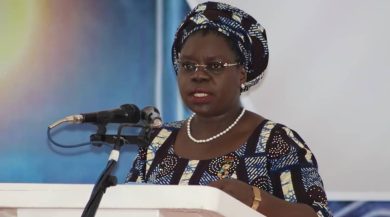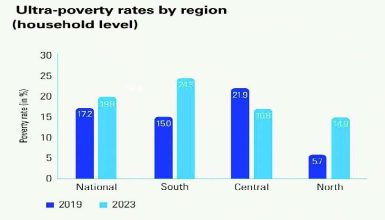MCP bemoans kwacha floatation impact
 The main opposition Malawi Congress Party (MCP) has faulted the after-effects of devaluation and the subsequent floatation of the kwacha, saying ordinary Malawians have faced untold misery.
The main opposition Malawi Congress Party (MCP) has faulted the after-effects of devaluation and the subsequent floatation of the kwacha, saying ordinary Malawians have faced untold misery.
The party has since described the exchange rate regime being used by Malawi as “not sustainable for a poor economy like Malawi”, which it says has no industries and a strong export base.
MCP legislator Willard Gwengwe said this when he read the official response of MCP to the 2012/13 midyear budget statement presented by Minister of Finance Ken Lipenga on February 15.
He said: “The purchasing power of the rural masses has been significantly eroded as a result of the massive devaluation and subsequent floatation of the kwacha.”
Government, through the Reserve Bank of Malawi (RBM), devalued the local unit by a magnitude of 49 percent on May 7 last year and also announced the subsequent liberalisation of the exchange rate regime as part of an economic reform package.
Gwengwe recalled: “Nine months ago, the kwacha was officially trading at K167 to dollar, but as I am speaking now, the local currency is trading at almost K400 to a dollar. If the PP [People’s Party] government is not careful, by the end of this year, the kwacha will be trading at more than K1 000 to a dollar.”
He said in the villages, people cannot afford to buy basic commodities such as soap, salt, sugar and clothes.
Gwengwe also said most Admarc depots have run out of maize stocks and that people are now relying on private traders and vendors for the supply of maize.
He said a bag of maize is now selling at more than K5 000 per bag in villages and more than K7 500 in the urban centres.
He also wondered how the PP government is going to achieve infrastructure development “when it is failing to control the rapid cost of production”.
Gwengwe also faulted the automatic pricing mechanism (APM) for fuel, saying the policy is hitting motorists and minibus users hard as it has pushed extra costs to the end consumer.
Lipenga admitted in the midterm budget statement that Malawi economy still remains fragile due to the failure to make tough economic decisions in the past.
Both Minister of Economic Planning and Development Goodall Gondwe and RBM Governor Charles Chuka have on a number of times snubbed calls to abandon the floatation of the kwacha, warning that doing so could be disastrous and suicidal to the land-locked nation.
“The worst thing that you can do is to abandon [the floatation of the kwacha]. Then we will go back to the days of 2011. We will have a forex black market again. Why should we abandon it? So, that will not be done,” said Gondwe in a recent interview.





